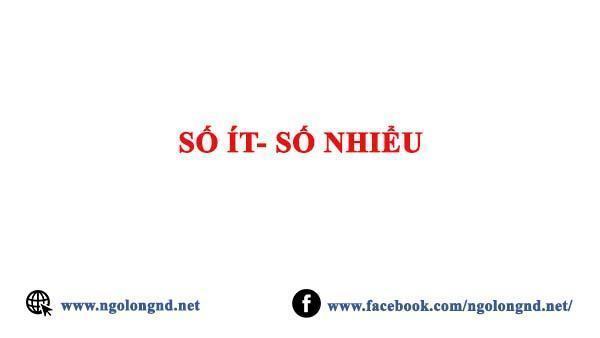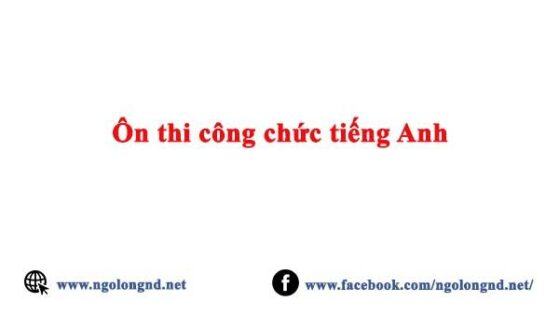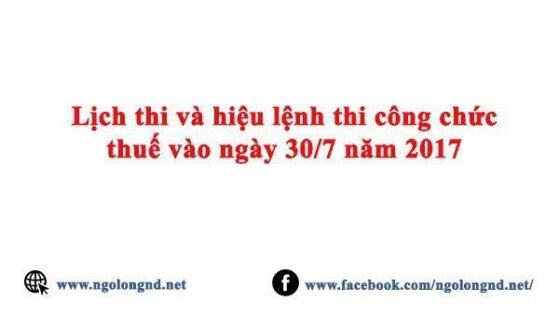
Tiếng Anh công chức thuế phần 9:SỐ ÍT- SỐ NHIỂU. Tài liệu ôn thi tiếng anh công chức thuế, De thi tiếng Anh công chức thuế 2020, De thi tiếng Anh công chức thuế 2021, Ôn tiếng Anh công chức thuế, Lớp on thi công chức thuế 2021, Thi công chức thuế 2021, Cấu trúc de thi tiếng Anh công chức thuế, Tài liệu ON thi công chức thuế 2021, De thi tiếng Anh thuế 2020
Nội dung chính:
1) N AND N (Hai danh từ nối với nhau bằng chữ and)
Khi 2 danh từ nối nhau bằng chữ and thì thông thường là dùng số nhiều, nhưng trong các trường hợp sau thì lại dùng số ít:
– Khi chúng cùng chỉ một nguời, một bộ, hoặc 1 món ăn.
Đối với danh từ chỉ người thì dấu hiệu nhận biết cùng 1 người là danh từ thứ 2 không có THE.
Ví dụ: The professor and the secretary are … (Ông giáo sư và người thư ký) => 2 người khác nhau.
The professor and secretary is ……(Ông giáo sư kiêm thư ký …) => Một người
Đối với món ăn thì cũng phải dịch theo nghĩa.
Ví dụ: Salt and pepper is ….. (Muối tiêu) => Xem như một món muối tiêu.
Bread and meat is…. (Bánh mì thịt) => Xem như một món bánh mì thịt.
The saucer and cup is… (Tách và dĩa để tách được xem như một bộ).
– Phép cộng thì dùng số ít:
Two and three is five (2 + 3 = 5)
2) LUÔN LUÔN SỐ ÍT:
Gặp các chữ sau đây luôn luôn dùng số ít.
EACH, EVERY, MANY A, TO INF, VING, MỆNH ĐỀ DANH TỪ, TỰA ĐỀ
Lưu ý chữ ” MANY A ” + danh từ số ít
Many a book is…
(Nhưng many không có a thì vẫn dùng số nhiều: Many books are..)
Ví dụ: Each man and woman is …..(Có chữ each ở trước thì phía sau dù có “and” bao nhiêu lần cũng mặc kệ, ta vẫn dùng số ít nhé)
– Chủ từ là To inf. hoặc Ving
Ví dụ: To do this is ….
Learning English is………
– Chủ từ là tựa đề.
Dấu hiệu để nhận ra tựa đề là nó được viết trong ngoặc kép.
Ví dụ: “Tom and Jerry” is ….
“War and Peace” is… (Truyện “Chiến tranh và hòa bình” là …)
“Gone with the wind” is..(Tiểu thuyết “Cuốn theo chiều gió” là …)
3) DANH TỪ CÓ S NHƯNG DÙNG SỐ ÍT
– Nhóm Môn học: physics (vật lý), mathematics (toán)…. , dấu hiệu nhận biết là có tận cùng là ICS
– Nhóm Bệnh tật :
Measles (sởi), mumps (quai bị)…..
– Chữ News
– Nhóm Đo lường:
Ví dụ: Two pounds is …..(2 cân)
– Nhóm Khoảng cách:
Ví dụ: Ten miles is … (10 dặm)
– Nhóm Thời gian :
Ví dụ: Ten years is ….. (10 năm)
– Nhóm Gía tiền
Ví dụ: Ten dollars is … (10 đô la)
– Nhóm Tên nước :
The United States (Nước Mỹ), the Philipines
4) KHÔNG CÓ S NHƯNG DÙNG SỐ NHIỀU
Các danh từ tập họp sau đây:
People, cattle, police, army, children
– Nhóm tính từ có the.
The poor (người nghèo ), the blind (người mù ), the rich (người giàu ), the deaf (người điếc), the dumb (người câm), the injured (người bị thương ), the aged (người già), the elderly (người đứng tuổi), the young (người trẻ tuổi), the sick (người bệnh), the unemployed (người thất nghiệp)….
5) Hai danh từ nối nhau bằng các chữ : OR , NOR , BUT ALSO thì động từ chia theo danh từ phía sau.
Ví dụ: You or I am ….. (chia theo I)
Not only she but also they are….
6) Các danh từ nối nhau bằng: AS WELL AS, WITH, TOGETHER WITH thì chia theo danh từ phía trước.
Ví dụ: She as well as I is … (chia theo she)
7) Hai danh từ nối nhau bằng chữ OF thì chia theo danh từ phía trước nhưng nếu danh từ phía trước là none, some, all, most, majority, enough, minority, half, phân số …. thì lại phải chia theo danh từ phía sau:
Ví dụ: The study of science is …(Chia theo study)
Some of the students are …(Nhìn trước chữ of gặp some nên chia theo chữ phía sau là students)
Most of the water is …(Nhìn trứơc gặp most nên chia theo N phía sau là water )
8) NHÓM TIẾNG NÓI, DÂN TỘC
Tiếng nói dùng số ít
Dân tộc dùng số nhiều
Tiếng nói và dân tộc viết giống nhau nhưng khác ở chỗ: Dân tộc có the, tiếng nói thì không có the.
Ví dụ: Vietnamese is …. (Tiếng Việt thì ..)
The Vietnamese are …. (Dân tộc Việt Nam …)
9) A NUMBER và THE NUMBER
A NUMBER dùng số nhiều.
THE NUMBER dùng số ít.
10) DANH TỪ TẬP HỢP
Bao gồm các chữ như: family, staff, team, group, congress, crowd, committee….
Nếu chỉ về hành động của từng thành viên thì dùng số nhiều, nếu chỉ về tính chất của tập thể đó như 1 đơn vị thì dùng số ít.
Ví dụ: The family are having breakfast (Ý nói từng thành viên trong gia đình đang ăn sáng)
The family is very conservative (Chỉ tính chất của tập thể gia đình đó như là một đơn vị)
11) GẶP CHỮ THERE :
Thì chia theo danh từ phía sau:
There is a book (Chia theo a book).
There are two books (Chia theo books).
Tuy nhiên: There is a book and two pens (Vẫn chia theo a book).
12) ĐỐI VỚI MỆNH ĐỀ RELATIVE
Chia động từ trong mệnh đề trước sau đó bỏ mệnh đề đi để chia động từ còn lại
Ví dụ: One of the girls who (go) out (be) very good.
Chữ go có chủ từ là who = girls => Chia theo số nhiều: go
Bỏ mệnh đề đi cho dễ thấy:
One of the girls (be) good. Gặp of chia theo chữ trứơc là one => Số ít: is
EXERCISES
I. Chia động từ trong ngoặc:
1. Mary (get) …………… up early.
2. Mary and Daisy always (get) …………… up early
3. The secretary and the treasurer (be) …………… present.
4. The singer and doctor (be) …………… coming.
5. Bacon and egg (be) …………… my favorite dish.
6. Many a teacher (have) …………… attended the lecture.
7. Nobody (come) …………… the party.
8. Everything (be) …………… ready.
9. The study of languages (require) …………… time.
10. The president, together with his advisors, (be) …………… coming
11. The manager, as well as his assistant, (have) …………… arrived.
12. The number of students (be) …………… 40.
13. Either you or I (be) …………… wrong.
14. Neither he nor his friends (be) …………… able to come.
15. Twenty dollars (be) …………… too much to pay for this book.
16. Half of the money (be) …………… stolen.
17. The news (be) …………… goods.
18. Mathematics (be) …………… an important subject.
19. There (be) …………… much traffic during rush hours.
20. The rich (be) …………… often very selfish.
21. “Gulliver’s Travels” (be) …………… an amusing book.
22. Cattle (be) …………… grazing.
23. The English (be) …………… used to driving on the left.
24. His family (be) …………… rich.
25. His family (be) …………… having dinner.
26. Lan and her sister (go) …………… shopping every weekend.
27. Every man and woman (be) …………… responsible for his actions.
28. All of them (be) …………… Vietnamese.
29. A lot of the people (be) …………… injured.
30. Their furniture (be) …………… badly damaged during the flood.
31. I need a little more time Sir. Just 5 minutes (be) …………… enough.
32. Most people (fear) …………… spending a night alone.
33. The police (be) …………… always late in films.
34. Some of the girls in our school (be) …………… over 18.
35. Each one of us (have) …………… our own characteristics.
36. Half of the students (be) …………… English.
37. The weather in some African countries (be) …………… boiling hot in August.
38. All of the equipment (be) …………… out of date.
39. The number of casualties (be) …………… increasing.
40. No news (be) …………… good news.
41. Your jeans (be) …………… torn. Let me mend them for you.
42. A red and yellow car (be) …………… waiting outside.
43. None of the money (be) …………… mine.
44. One of her friends (be) …………… from Tokyo.
45. There (be) …………… several ways you may solve this problem.
46. There (be) …………… an easy way to solve it. Let me show you.
47. The United States (be) …………… a rich country.
48. Statistics (be) …………… hard to learn.
49. Either you or your sister (need) …………… to buy some flour.
50. Your photo of the birds (be) …………… perfect.
51. Either my father or my mother (be) …………… at home.
52. Neither Helen nor her brothers (do) …………… the shopping.
53. Each of the parents (be) …………… responsible for child care.
54. The manager, along with the teachers, (be) …………… present at the meeting.
55. Either you or I (be) …………… going to buy some sugar.
56. The police (be) …………… carrying guns and gas.
57. There (be) …………… a nice swimming pool nearby.
58. There (be) …………… ten students who failed geography.
59. The number of unemployed citizens (be) …………… rising day by day.
60. Half of our income (go) …………… to rent.
II. Chọn từ đúng:
1. The boys in the room (is/are) playing chess.
2. To find the books (is/are) necessary for him.
3. A number of applicants (have/has) already been interviewed.
4. Washing with special cream (is/are) recommended for scalp infection.
5. Nobody (work/works) harder than John does.
6. The picture of the soldiers (bring/brings) back many memories.
7. Dieting (is/are) very popular today.
8. The windows of house (is/are) very big.
9. No problem (is/are) harder than this one.
10. Either John or Bill (is/are) going to the beach today.
11. None of the students (have/has) finished the exam yet.
12. Mr. Robin, accompanied by her wife and children, (is/are) arriving tonight.
13. Mary or her manager (is/are) going to answer the press interview.
14. Everybody (want/wants) buy a ticket of this live show.
15. No examples (is/are) relevant to this case.
16. The quality of this recordings (is/are) not very good.
17. John, along with twenty friends, (is/are) planning a party.
18. A number of reporters (was/were) at the conference yesterday.
19. Each student (has/have) answered the first three questions.
20. Mumps (is/are) not common among adults.
21. Viruses from third world countries (is/ are) a major concern.
22. Most of the sand (is, are) wet from the high tide.
23. Either the two kittens or the puppy (sits/ sit) in my lap while I watch television.
24. A subject of great interest (is/ are) rainforests.
25. “Hansel and Gretel” (is/ are) a famous children’s story.
26. The team members (is/ are) arguing over the defense tactics.
27. Why (is/ are) your parents going to Africa for a vacation?
28. The mayor and the governor (hopes/ hope) that the bill will become a law.
29. The price of these jeans (is/ are) reasonable.
30. Bread and butter (is/ are) our daily food.
31. The famous singer and composer (has/ have) arrived.
32. Collecting match-boxes (is/ are) one of his favorite pastimes.
33. The quality of the candies (is/ are) poor.
34. Neither his father nor his mother (is/ are) American.
35. The effects of cigarette smoking (have/has) been proven to be extremely harmful.
36. Even though the students like the class, a few (thinks/ think) that it is too complicated.
37. Either the physicians or the administrator (is/ are) going to make a decision.
38. (is/ are) my boss or my sisters in the union going to win this grievance?
39. Some of the votes (seem/ seems) to have been miscounted.
40. The tornadoes that tear through this county every spring (is/ are) just a nuisance.
41. Everyone selected to serve on this jury (has/ have) to be willing to give up a lot of time.
42. Tom, together with her friends, (present/ presents) a formidable opponent.
43. He seems to forget that there (is/ are) things to be done before he can graduate.
44. There (has/ have) to be some people left in that town after yesterday’s flood.
45. Some of the grain (appear/ appears) to be contaminated.
46. Three-quarters of the students (is/ are) against the tuition hike.
47. Three-quarters of the student body (is/ are) against the tuition hike.
48. A high percentage of the population (is/ are) voting for the new school.
49. A high percentage of the people (is/ are) voting for the new school.
50. A large percentage of the older population (is/ are) voting against her.











Pingback: kojic acid soap
Pingback: พรมปูพื้นรถยนต์ Changan Deepal S07